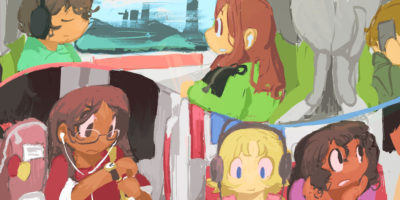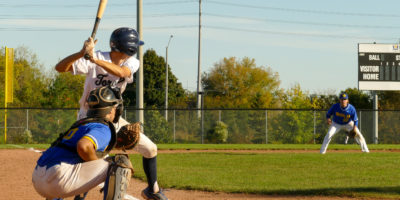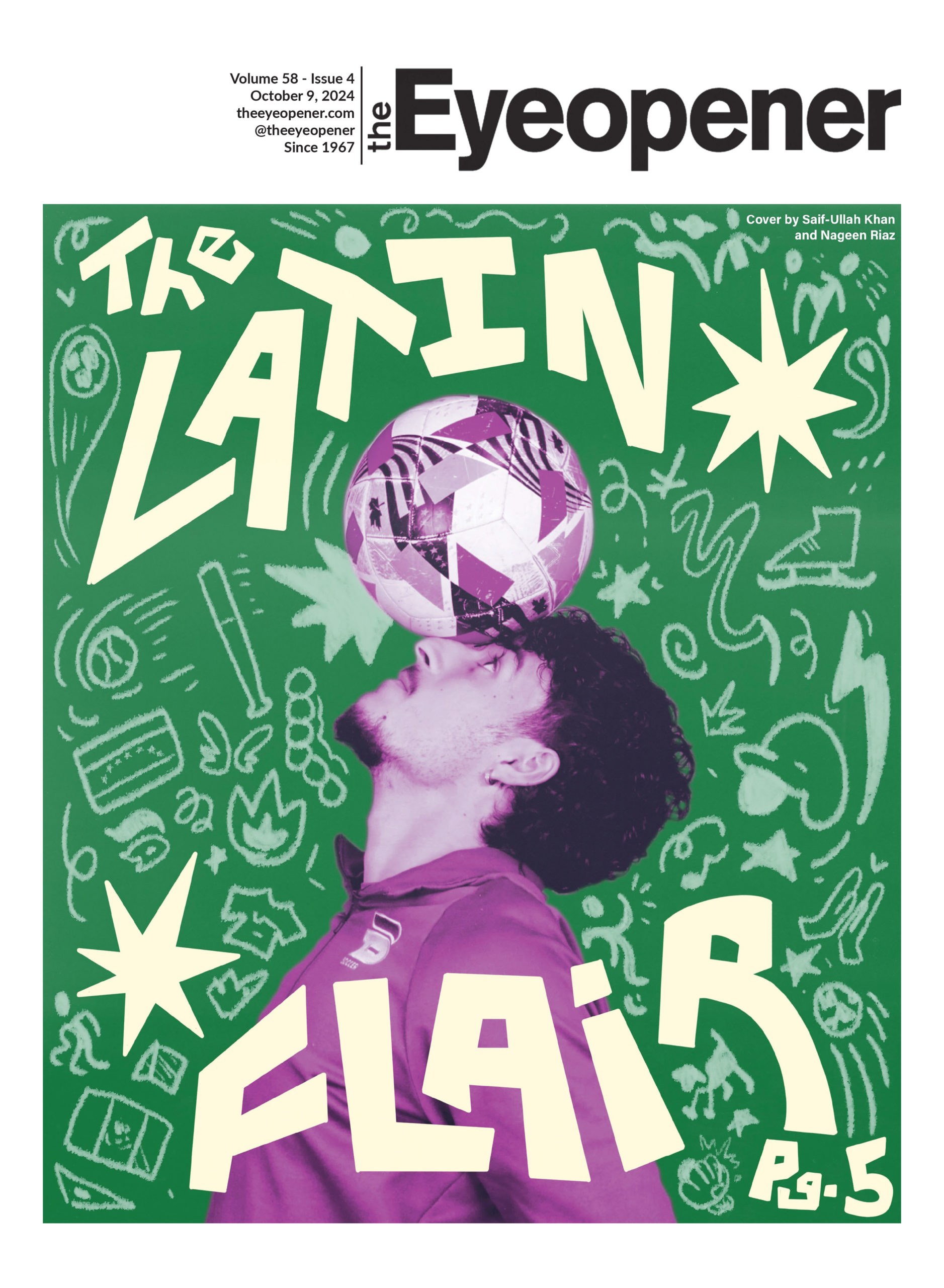By Jonathan Bradley
Ryerson faculties are altering course curricula after president Mohamed Lachemi announced that the university would be cancelling in-person classes due to COVID-19.
On March 13, Lachemi issued a statement via Ryerson Today stating all in-person classes would be suspended and moved online or in alternative formats.
Lachemi said the week of March 16 to 20 was expected to provide professors with a “week of transition” in order to “explore and implement alternate arrangements.”
With the “week of transition” being complete, Ryerson faculties have been working to address the needs of their students.
The Eyeopener spoke to four of Ryerson’s faculties on the changes they’ve had to make since in-person classes have been cancelled. The remaining faculties—The Faculty of Community Services and the Faculty of Engineering and Architectural Science—did not respond with a direct comment in time for publication.
Faculty of Arts
Kathleen Kellett, associate dean of the Faculty of Arts in undergraduate studies, said making the transition to teaching remotely has been challenging.
“During this week of transition, we are looking for ways to maintain the effectiveness of our teaching under difficult circumstances,” said Kellett.
According to Kellett, COVID-19 has led to the Faculty of Arts cancelling the trip to Ottawa for the women in the house course where female politics and governance students were supposed to shadow MPs and learn more about the world of politics. The course had other hands-on components that students were evaluated on, such as a panel discussion led by politics and governance professor Tracey Raney and politics and governance visiting practitioner Peggy Nash.
Kellett added that the Faculty of Arts has looked into changing course outlines. This would be done through Policy 166, and she said it might be necessary.
“Our intent is to ensure that our students receive the best possible instruction under the circumstances,” said Kellett.
Faculty of Communication and Design (FCAD)
Charles Falzon, dean of FCAD, said all instructors are finding creative alternatives to assignments and are striving for unique versions of hands-on learning.
Falzon said the instructors who have done their courses online have reported “good results.”
“I think in today’s world, virtual adaptations of classroom activities could prove effective,” said Falzon. “It may require a little adjustment on our end, but so far it has been working successfully. Falzon said that for example, in the RTA School of Media, 17 of 20 online classes from March 17 had about 80 per cent attendance.
“Both the faculty and staff at FCAD have done an incredible job so far in making themselves available, inquiring about their students’ health and wellbeing, and supporting those who need help,” said Falzon. “They are the students’ second family, and they have their best interest at heart.”
Not all classes can be translated directly to an online format, though. Elena Milo, a first-year acting student, said all of her rehearsals and performances have been cancelled.
“Our acting classes were open rehearsals where we would rehearse for our shows and get feedback from our professors,” said Milo. “We’re not doing any of that anymore. We don’t know how things are moving forward.”
Milo said her professors are going to try making classes more technical and about analyzing scripts.
She said she has “no idea” what is going to happen with creative performance studies class because it is about creating collaborative pieces with dance students.
While there is uncertainty over what is happening with her classes, she said she understands why Ryerson has taken action.
“It makes me sad that we can’t do any of the stuff we’ve worked for, especially because these performances were going to be our first ever as students at Ryerson,” said Milo. “But it needed to be done.”
Faculty of Community Services (FCS)
Lisa Barnoff, dean of FCS, issued a statement that said students’ safety and the safety of the communities they work with is her main priority.
“We are working closely with all FCS schools during this time of transition to make sure your learning needs continue to be met, and your safety is prioritized,” said Barnoff’s statement.
In her statement, Barnoff said in addition to receiving faculty-wide updates from FCS, students will receive information and updates from their program directors, professors, and instructors about changes to their courses. The office of the dean will also be offering services remotely, the statement read. Staff in Barnoff’s office will be monitoring messages and can be accessed through phone, email, and video chat.
Sophia Lin, a first-year nursing student, said her scheduled clinicals for her nursing practice class were supposed to continue despite in-person classes being cancelled. However, Lin’s professors eventually decided to cancel her clinical placement for the rest of the semester.
Lin was going to have a focused exam for her nursing assessment class at some point from week nine to 11. A focused exam is a simulation where nursing students are given a scenario with a sick patient and have to handle the situation using clinical skills learned throughout the semester.
But according to Lin, her professor informed her that the focused exam has been cancelled and she has already received her final mark.
Lin said she felt cancelling in-person classes was overdue.
“I was relieved that Ryerson finally took action, but I also felt it was irresponsible of them to wait so long considering we’re a commuter school in a densely populated area,” said Lin.
Faculty of Engineering and Architectural Science
Thomas Duever, dean of the Faculty of Engineering and Architectural Science, did not issue a statement about in-person classes being cancelled because of COVID-19. However, each department chair has provided their students with updates.
Donatus Oguamanam, the chair of the Department of Mechanical and Industrial Engineering, said in a statement sent to students through email that the COVID-19 pandemic has been “a difficult and challenging time.”
Oguamanam said in his statement that professors will contact students to address how their courses will be taught. Professors are also being encouraged to make changes to their evaluation schemes.
His statement said grading variations have been suspended in mechanical and industrial engineering. Grading variations mean that mechanical and industrial engineering students have to receive 50 per cent on their combined midterm and final averages and 50 per cent in their labs to pass the class. Now passing or failing a course is based on receiving an overall minimum grade of 50 per cent.
According to him, some topics will not be covered in as much detail as professors had planned. Professors for fall semester classes might provide quick reviews of topics that are relevant to their specific course at the beginning of the term.
Alessandro Quagliotto, a third-year mechanical engineering student, said he is having his lectures and tutorials done through Zoom or Google Meet.
Hardware labs—workshops where engineering students perform experiments using hardware to apply the theory learned in lectures to real-life scenarios—have been cancelled or will have the data emailed to students.
Quagliotto said professors are speaking with the Canadian Engineering Accreditation Board (CEAB) to determine how exams are going to be done. The CEAB sets the standards for engineering education in Canada.
He said he is disappointed that he is losing out on the practical aspect of some of his classes.
“It sucks that I don’t get to see the theory learned in class put into practice, but I understand why they need to be cancelled,” he said. “Fortunately, most of my hardware labs are finished, so I’m not missing out on much.”
Faculty of Science
David Cramb, dean of the Faculty of Science, said the cancellation of in-person classes will affect the lab aspect of science classes the most.
“Laboratories are very specialized,” said Cramb. “There are state of the art instruments that are not available to the average person.”
Cramb said some experiments will be done through “kitchen chemistry,” but it will be challenging for some upper year classes. In the coming year, Faculty of Science professors will revisit any skills that might have been missed in prerequisites.
He said he has encouraged some classes to remove assignments and increase the percentages of ones that have been completed to minimize stress.
“Everyone is doing their best to adjust,” said Cramb. “I am proud of students and faculty and staff’s ability to cope.”
Ted Rogers School of Management (TRSM)
Daphne Taras, dean of TRSM, said the faculty is “not micromanaging professors.”
“We are giving broad parameters and allowing individual professorial decisions to be made that suit each course,” said Taras. “Each department chair or school director is working with faculty to identify different approaches. We are encouraging sensible, flexible and operationally-sound approaches.”
Taras said TRSM has urged professors to continue to use and intensify graduate and teaching assistants.
She added that she understands students might be annoyed with Ryerson shutting down, although what she is most worried about is the future.
“We are sympathetic and trying hard to keep up the quality of education,” she said. “We are more concerned though about our students losing co-op placements, jobs, and financial security right now.”










Leave a Reply